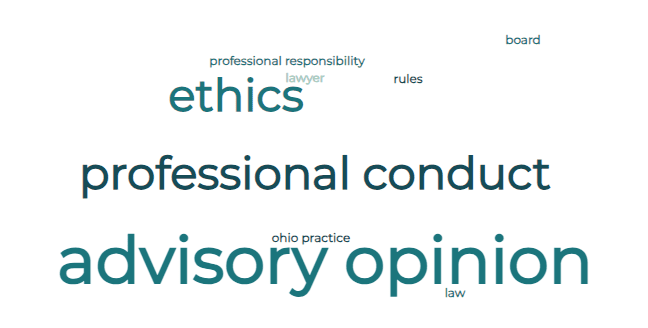Competent in Ethics and Professional Responsibility, not so in utilizing Microsoft Teams Polls in a Continuing Legal Education Seminar
As attorneys representing licensed professionals in Ohio, one of the most important ethical standards to understand is competence—and the Ohio Rules of Professional Conduct, particularly Rule 1.1, sets the foundation for what it means to provide competent legal services.

The idea is, as Steve Jobs once said “Do not try to do everything. Do one thing well”.
We are Ethics and Professional Responsibility attorneys for Ohio licensed individuals, and not, Microsoft Teams Experts (as learned through our webinar on December 19, 2024 – Thank you to those that stuck through the technological issues!).
So, what Does Rule 1.1 of the Ohio Rules of Professional Conduct Say?
Rule 1.1 states:
“A lawyer shall provide competent representation to a client. Competent representation requires the legal knowledge, skill, thoroughness, and preparation reasonably necessary for the representation.”
Elements of Competent Representation
- Legal Knowledge: A lawyer, or any licensed professional, must possess the knowledge necessary to handle the client’s needs. This involves having an understanding of the relevant laws, regulations, and ethical guidelines in the professional’s field.
- Skill: Competence requires that the professional has the skill needed to perform the work effectively. For attorneys, this might mean litigation skills or negotiation techniques.
- Thoroughness: Competence doesn’t just mean having knowledge and skill—it means being thorough in handling all aspects of a client’s case or matter. A lawyer must carefully research and evaluate legal issues. Thoroughness ensures that all angles are considered and that no critical detail is overlooked.
- Preparation: Proper preparation is crucial for competent representation. Attorneys must prepare for court appearances, legal research, and case strategy. In other professions, this might mean preparing patient records, reviewing financial statements, or conducting risk assessments before taking action. Preparation helps to minimize mistakes and improve outcomes.
The New Frontier: Competence in a Digital Age
Alright, let’s pause here for a moment—because these days, competence now involves more than just knowing your craft. It also means becoming somewhat proficient with technology. We are working on this.
Yes, technology. That word that makes your eyes glaze over, your palms sweat, and your heart race faster than a legal brief due in an hour (that is us for sure). We’re talking about video conferencing, AI, Microsoft Teams Polls, and every other virtual tool we now need to make our professional lives “more efficient.” But here’s the thing—competence also means adapting to these new challenges. And as much as we all want to pretend we’re “too old school” for AI or that we “don’t get” how Microsoft Teams Polls work, these tools are part of the modern professional landscape.
So, if you’re asked to conduct a webinar and use a poll on Microsoft Teams, and you’re like, “Uh, what is a Teams Poll, and why does it feel like I’m being tested?”—don’t panic. But—let’s be honest—sometimes the only thing you’re polling is whether your tech will crash halfway through the presentation.
